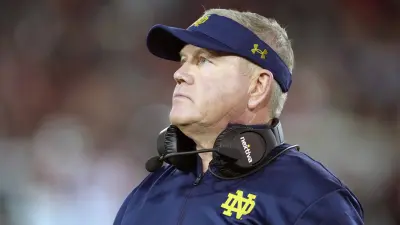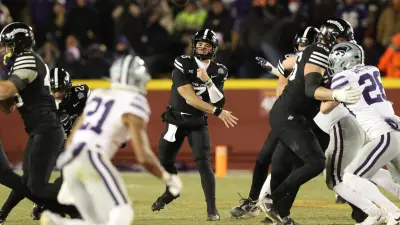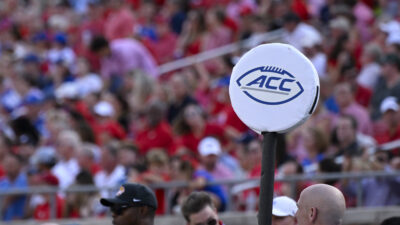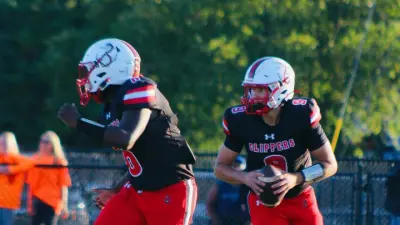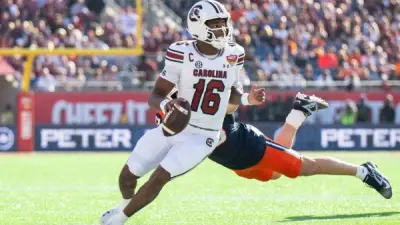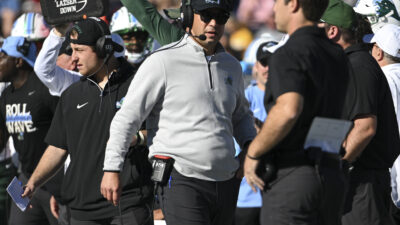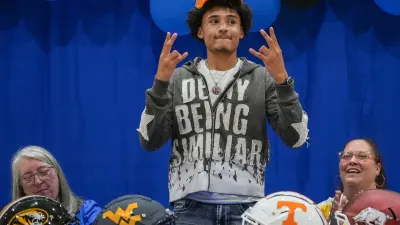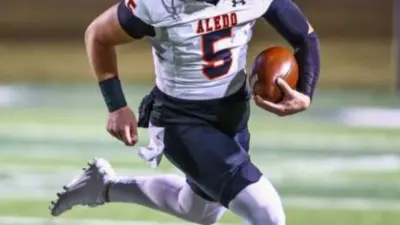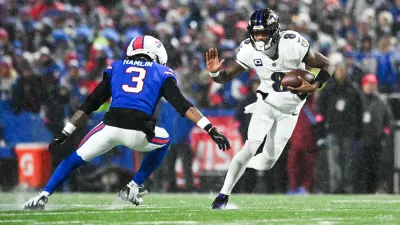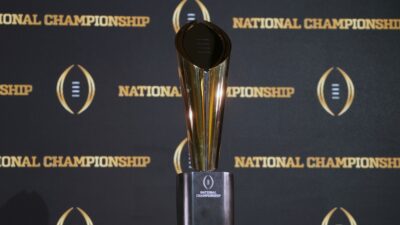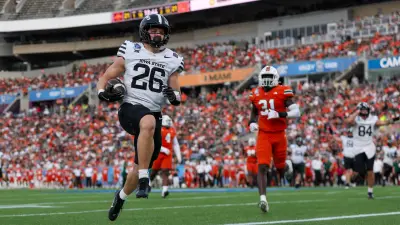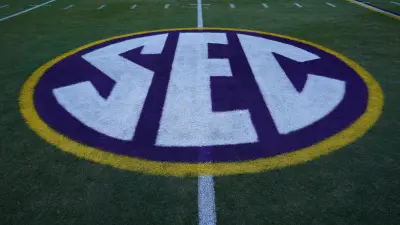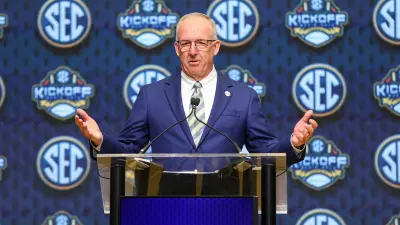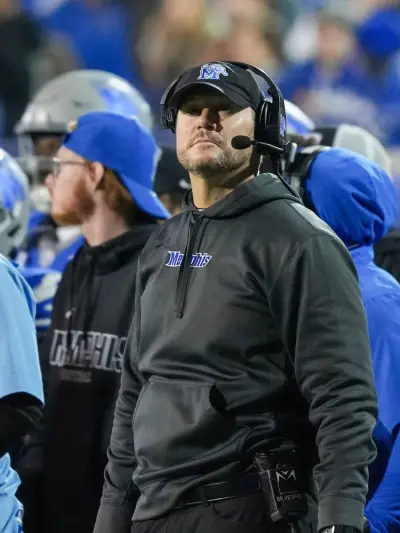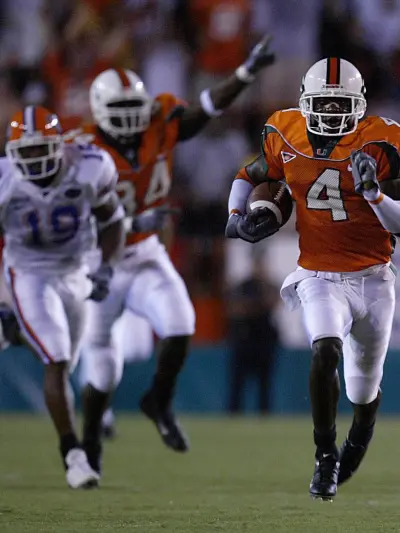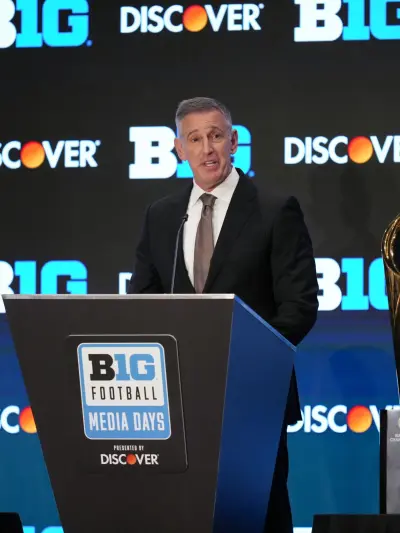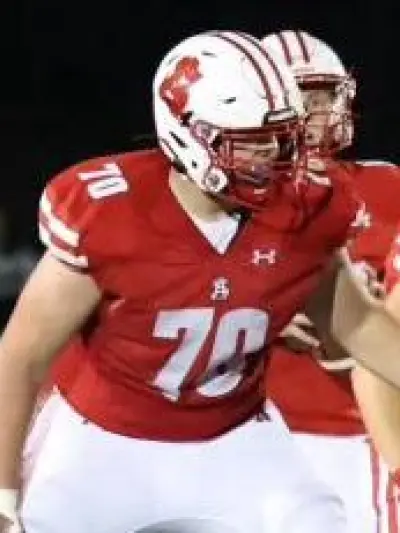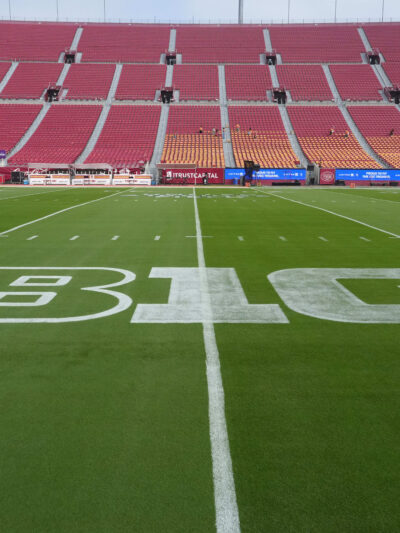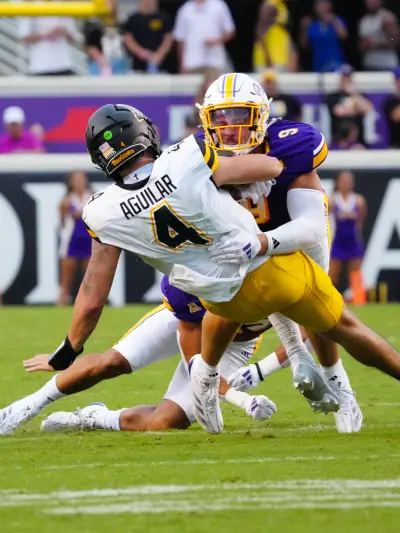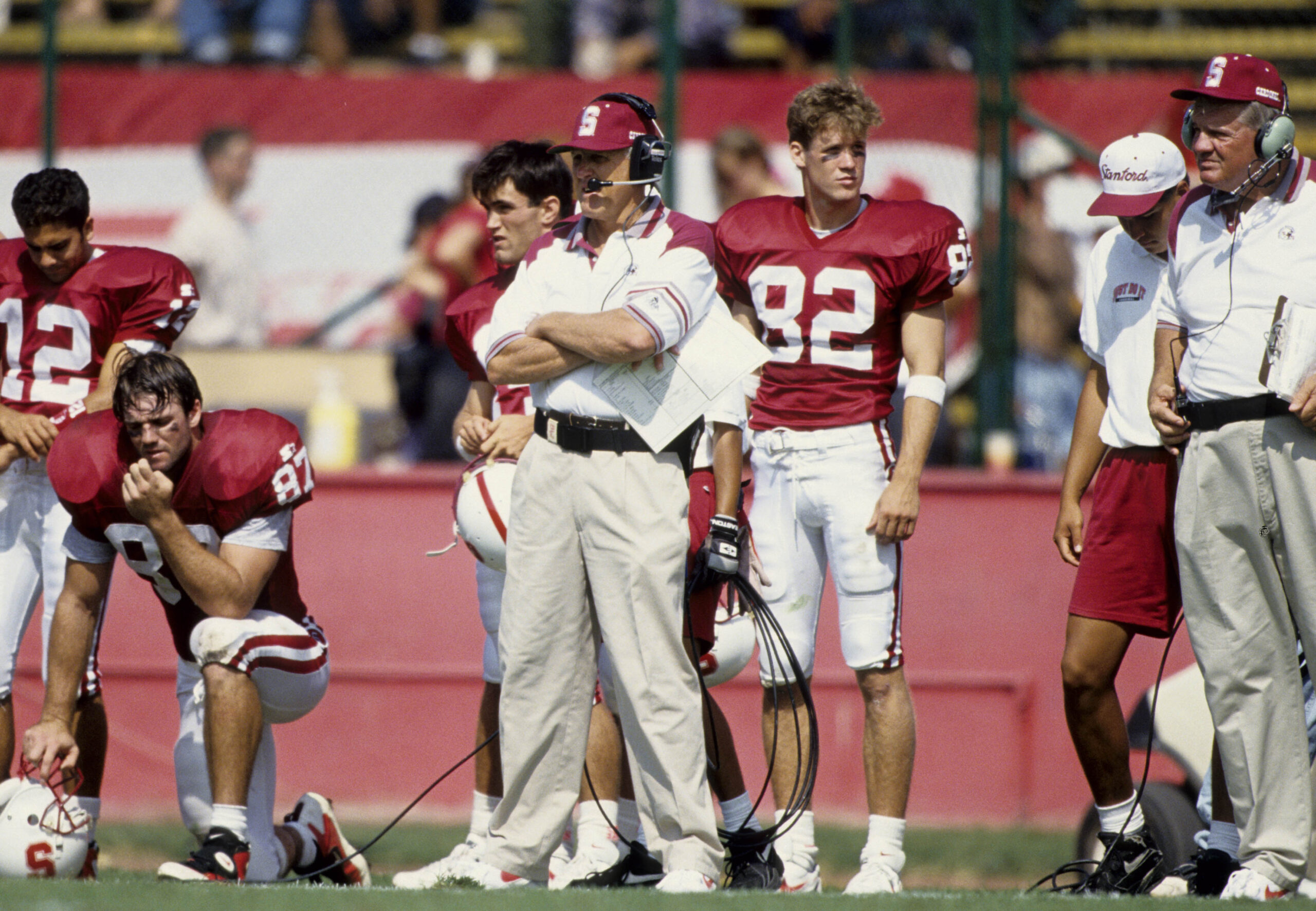
Bill Walsh – Stanford
The key ingredients that success was highly probable
Nicknamed “The Genius” for expanding on Paul Brown’s offensive scheme to create the West Coast Offense, Walsh was the NFL Coach of the 1980s. Walsh guided the San Francisco 49ers to three Super Bowls, winning 10 of 14 playoff games, and molded quarterback Joe Montana into an NFL immortal.
Prior to joining the San Francisco 49ers, Walsh was Brown’s offensive coordinator for the San Diego Chargers. Realizing that he would never be promoted to head coach, he took the Stanford job in 1977.
In his two seasons as Stanford head coach, Walsh went 17-7 with two victories for The Axe versus rival California and bowl wins with Top 20 finishes.
The lack of success
After emotionally retiring from the NFL following Super Bowl XXIII, Walsh had the itch to return to coaching. However, he didn’t want to return to the pros, as he always held in high esteem the machine he created with the 49ers.
When the Stanford job became available, Walsh took the chance for a second stint in Palo Alto.
His first season was an extreme success as Stanford, and the Cardinal won a share of the Pac-10 Conference Championship, finished in the Top 10, and won the Blockbuster Bowl against Joe Paterno and Penn State Nittany Lions in a match-up CBS hyped as “The Genius vs. The Legend.”
More Sports News
As expectations began to rise, Walsh’s enthusiasm for the grind began to wane. After lackluster 1993 and 1994 seasons, Walsh retired from coaching for good.
Walsh was in his early 60s upon his return to Stanford and demonstrated immediate success with a school that had only been to two bowl games in the 15 years between his stints.
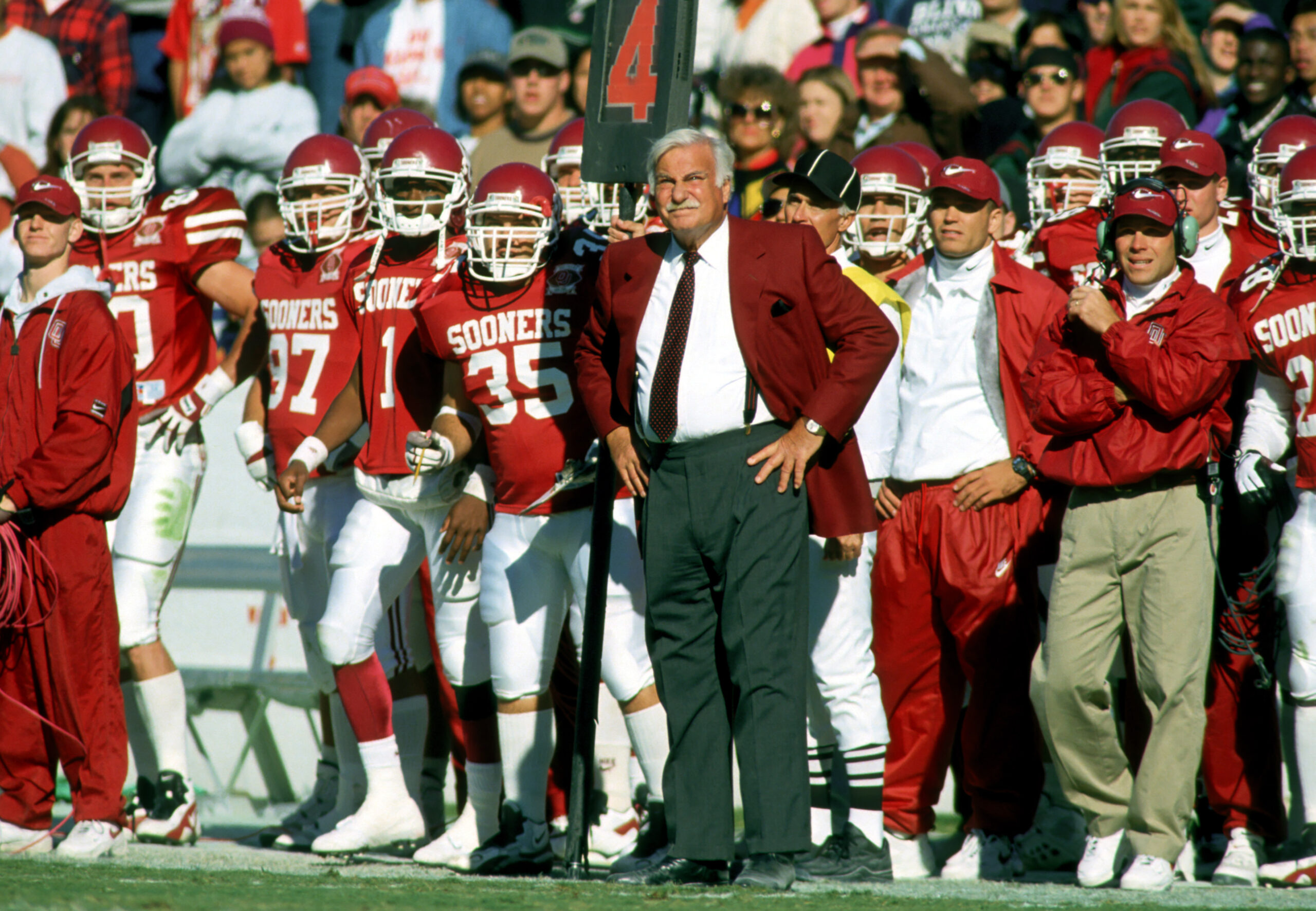
Howard Schnellenberger – Oklahoma
The key ingredients that success was highly probable
Schnellenberger’s resume as he took the Oklahoma job gave every indication that he would not only win at Oklahoma, but win big.
In his career up to that point, Schnellenberger worked previously at Alabama as an offensive coordinator for three of Bear Bryant’s national championships and helped land prized quarterback recruit Joe Namath.
Schnellenberger then went to work with Don Shula at the Miami Dolphins and was an offensive coordinator on the 1972 undefeated Super Bowl team.
After his time in the NFL, Schnellenberger led two reclamation projects one at Miami where he led them to the program’s first national championship in 1983, and then took over at Louisville where the program was in even more disarray and guided them to a 1991 Fiesta Bowl against Alabama and a Top 15 finish.
The lack of success
Schnellenberger butted heads with Louisville administrators in his final years. The final straw is when Louisville agreed to join Conference USA versus staying independent.
The pending conference move, Schnellenberger felt, took away any chance for competing for a national championship and he didn’t want to coach anywhere he couldn’t win a national championship.
Schnellenberger pounced on the Oklahoma job opening after the resignation of Gary Gibbs.
The bravado Schnellenberger demonstrated at Miami and Louisville, he tried to impose on Oklahoma fans.
The difference was Miami and Louisville were nothing programs prior to Schnellenberger’s arrival. Trying that tactic began to backfire early on Schnellenberger where Oklahoma fans were already accustomed to winning championships.
He rubbed Sooners fans the wrong way criticizing the conditioning of the team during the 1994 Copper Bowl. Leading up to the 1995 season, he proclaimed they would write books and film movies about the dominance that was about to happen.
Early on, it looked like Schnellenberger would deliver, having Oklahoma in the Top 10 and a 3-0 start. But the Sooners quickly collapsed and the friction between Schnellenberger and the Sooners began to grow.
After a disappointing 5-5-1 season, Sooner fans who were told they would forget who Bud Wilkinson and Barry Switzer were, quickly reminded Schnellenberger that Switzer never lost to Kansas State.
Schnellenberger abruptly resigned and neither side recognizes the existence of this season.
By all means, this should have not only worked but had been a very fruitful marriage, but it is arguably one of the most sour shotgun marriages between school and coach in college football history.
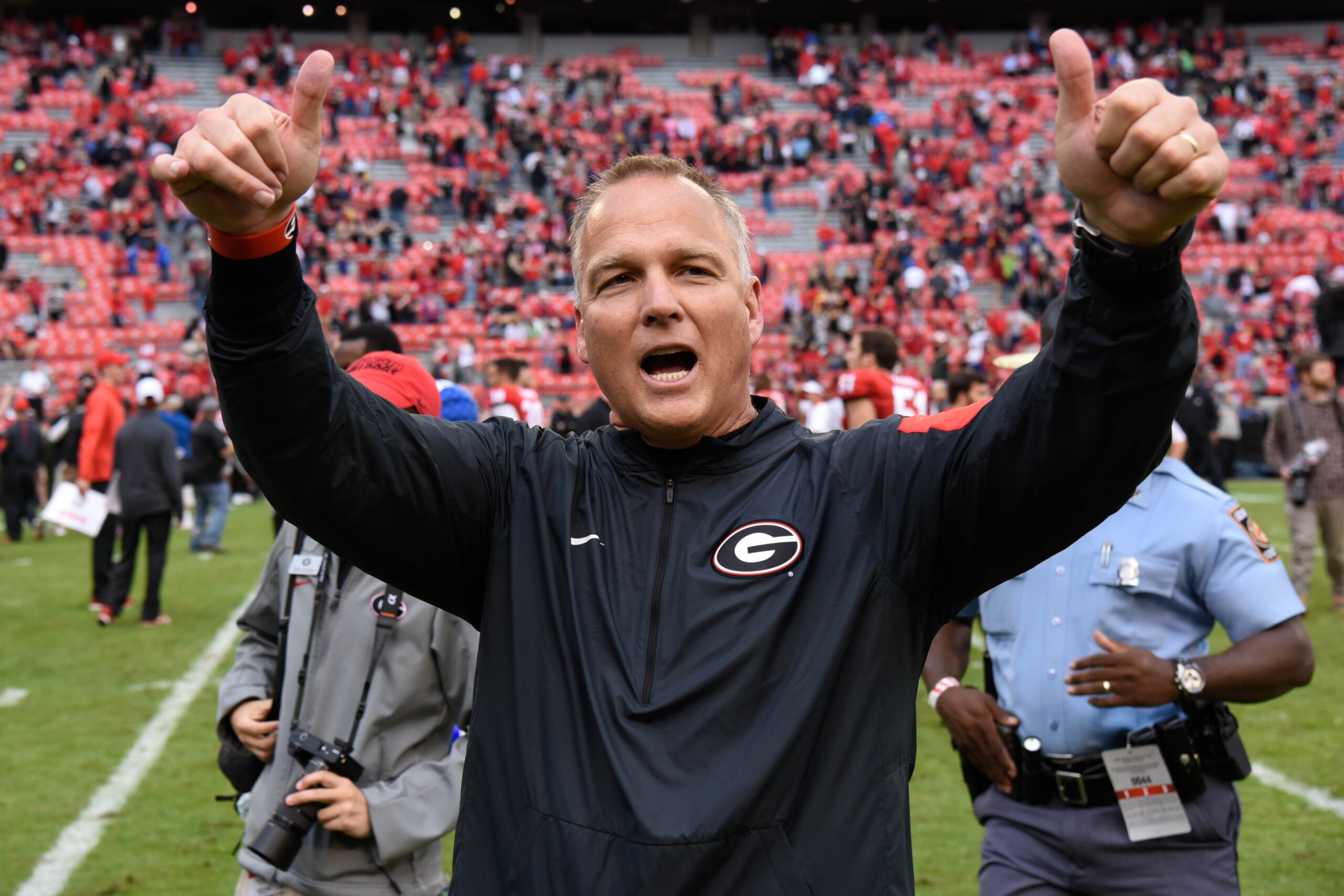
Mark Richt – Georgia
The key ingredients that success was highly probable
Richt got more than a decade of tutelage under Bobby Bowden at Florida State in the 1990s, working his way up from quarterbacks coach to eventually serving as FSU’s offensive coordinator from 1994 to 2000.
His ability to mold Chris Weinke into a Heisman Trophy winner and to coordinate the 1999 offense that consisted of Weinke, wide receivers Peter Warrick, Marvin Minnis, Laveranues Coles made that squad the first college football team to go wire-to-wire No. 1.
That success led Richt to become the head coach of Georgia in 2001.
His 2002 team, led by quarterback David Greene and defensive end David Pollack went 13-1, and won the SEC and Sugar Bowl against Richt’s mentor Bobby Bowden and Florida State.
The lack of success
Ultimately, Richt will make the College Football Hall of Fame, and his record would be the envy of many college football coaches winning nearly 73% of his games.
However, the issue with Richt isn’t the amount of games that he won, but the major games he did not win. Over his final seven seasons, Richt was 14-23 against ranked opponents.
When you look at the immense success Kirby Smart has enjoyed in his short tenure at Georgia, that is what Georgia fans expected from Richt.
Richt had all the resources to have the same success Smart is currently enjoying but couldn’t put it all together.
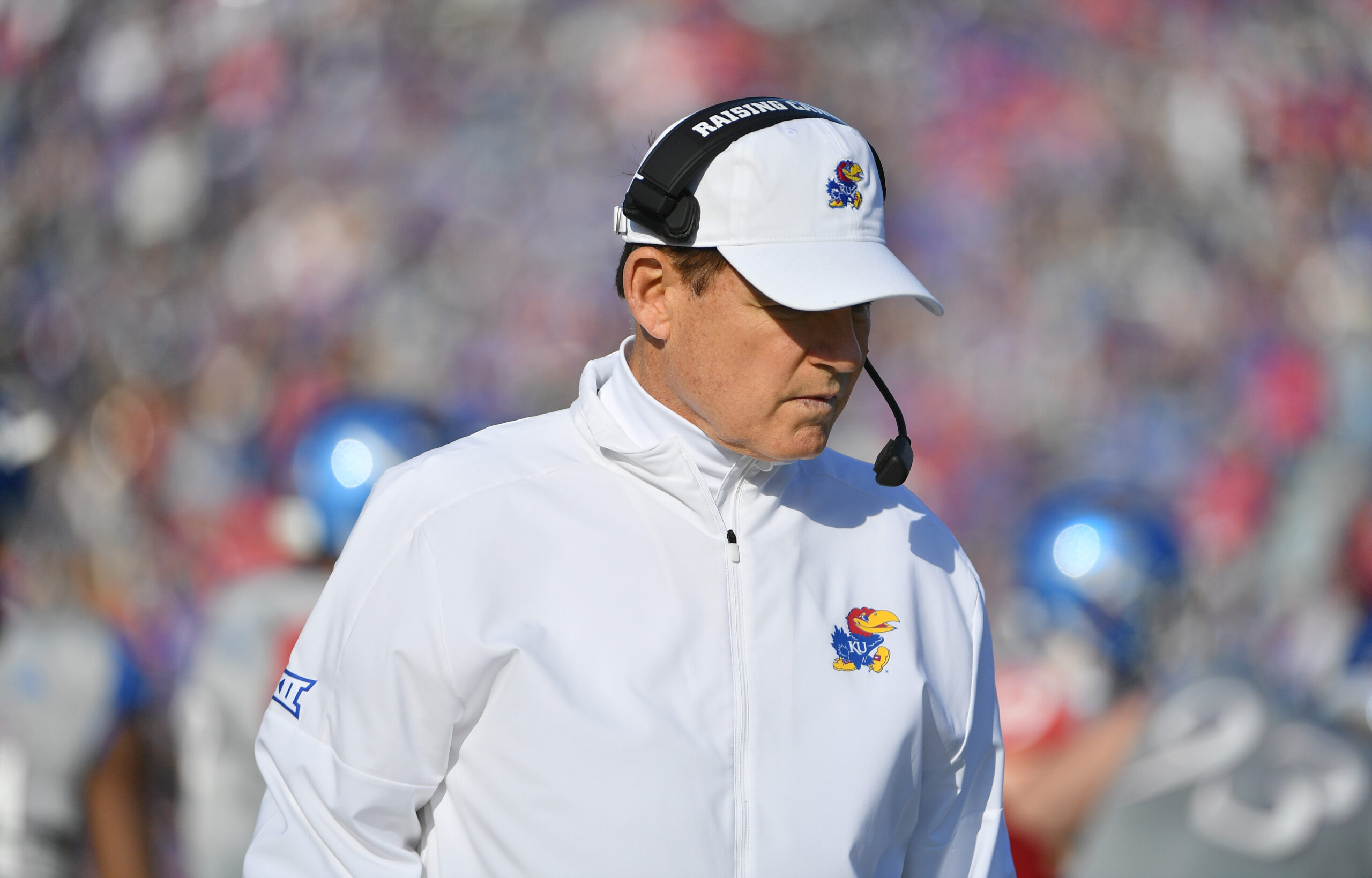
Les Miles – Kansas
The key ingredients that success was highly probable
Miles had experience taking over a downtrodden program. He took over a flailing Oklahoma State program in 2001 and found quick success.
When Miles took over, the Cowboys had been to one bowl game since the Barry Sanders era in Stillwater and had endured 11 losing seasons in the past 12 years.
Miles’ revival of Oklahoma State didn’t go unnoticed, as LSU poached him to replace Nick Saban when he left for the Miami Dolphins.
For LSU, Miles paid immediate dividends, capturing the 2007 National Championship and playing for another in 2011.
The lack of success
The warning signs for Kansas may have been right in front of them with Miles seeing the lack of desirable results for LSU in his final five seasons.
Kansas had gone a decade winning three games or less every year. The last time they won more than three games was in 2009 when they won five. The last winning season was in 2008.
Miles never seemed to be able to build off of his 2-1 start as he would lose 17 of his final 18 games.
The allegations of misconduct from previous stops derailed Miles’ tenure, but the pathetic performances on the field were extremely noticeable.
When you look at the culture change Lance Leipold has done in Kansas, especially getting an upset 57-56 win over Texas in Year 1 and then a bowl in Year 2, it goes to show someone who has an eerily similar resume to Miles, who put in the effort to reverse the course, can do it. It also helps maintain high standards, values, and ethics on and off the field as well.
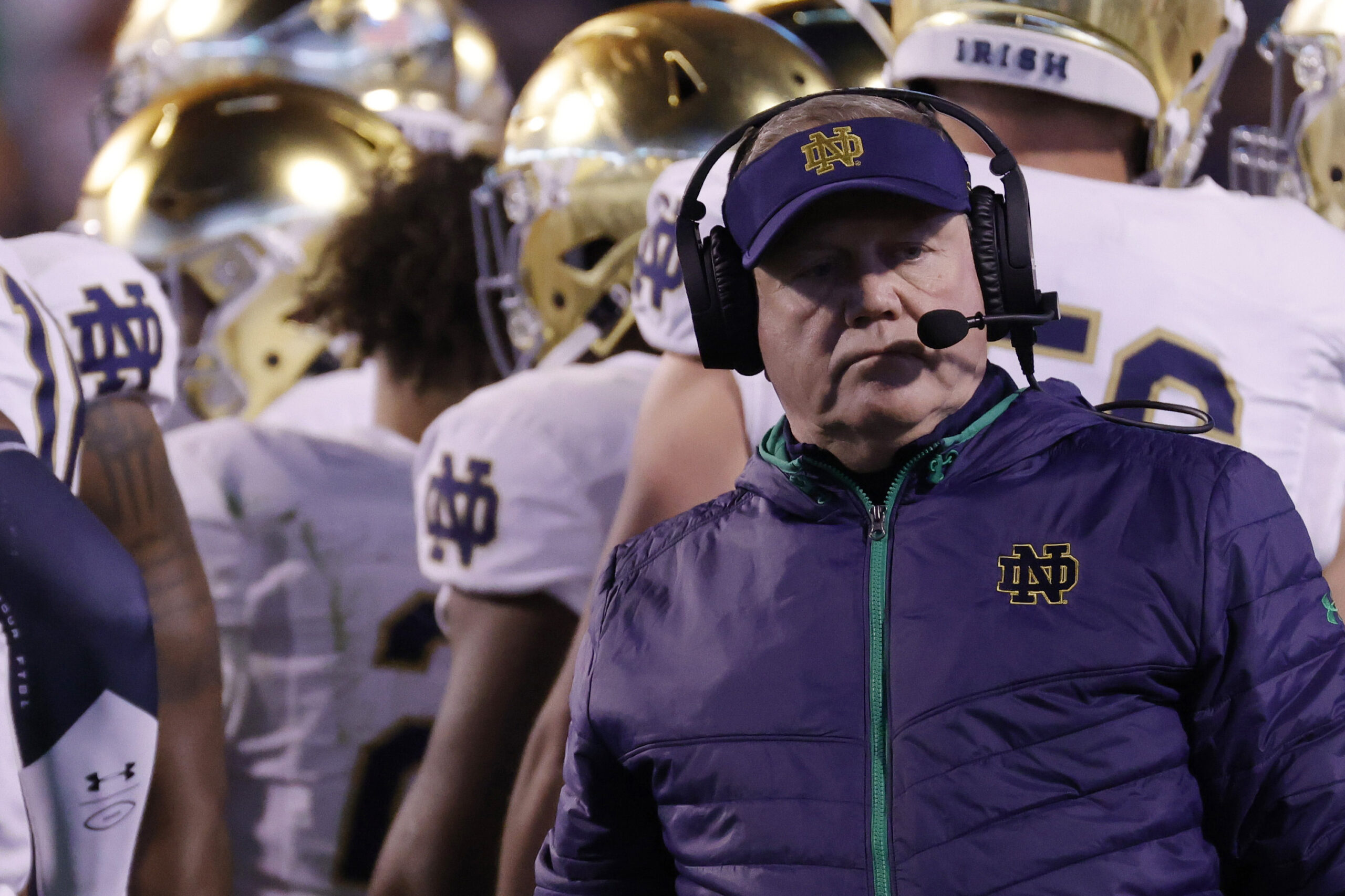
Brian Kelly – Notre Dame
The key ingredients that success was highly probable
Kelly won big at every stop he was at in his career.
He won two NCAA Division II National Championships at Grand Valley State, won a MAC Championship at Central Michigan, then two Big East Championships at Cincinnati, where he guided the Bearcats to back-to-back New Year’s Six bowls.
When Notre Dame came calling, it seemed to be a match made in heaven.
The lack of success
It’s hard to say Kelly had a lack of success at Notre Dame considering he unofficially won more games than any coach in school history. (He has 92 official wins and 21 vacated wins)
With Kelly, it is when you start to review his time at Notre Dame that you start to see the lack of big-time success. The type of success that Notre Dame fans set as the standard.
While Kelly was able to return Notre Dame to playing for a BCS National Championship in 2012 and two College Football Playoff appearances, the Irish weren’t competitive in the three games, being outscored a combined 103 to 31.
Kelly wasn’t able to win a New Year’s Six bowl in his time at Notre Dame. He finished with a 4-13 record against Top 10 teams and did not have a road win since 2012 against those opponents.
Recruiting was never an issue at Notre Dame. According to 247 Sports’ rankings, Kelly never had a recruiting class ranked lower than 17th during his time. He had several Top 10 classes, Kelly was always reloading high-end talent at Notre Dame.
One thing is for certain, we will find out if Notre Dame needs to look in the mirror and adjust more for the times if Kelly wins a national championship with LSU.
If Kelly cannot win a national championship considering the last three LSU coaches have won national championships in Baton Rouge, maybe Kelly is the one who simply cannot win at the highest of levels. Something he wasn’t able to do at Notre Dame.
